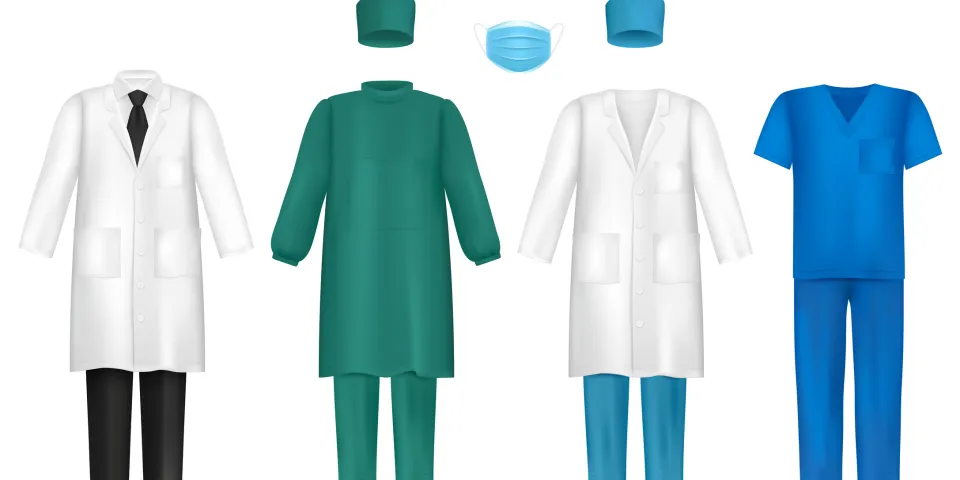Latest
FNP vs. AGNP: What is the Difference?
Mar 1, 2022

Healthcare and the role of the nurse practitioner are rapidly evolving. According to data from the Association of American Medical Colleges (AAMC), the United States could see an estimated shortage of 54,100 to 139,000 physicians by 2033. Nurse practitioners will play a critical role in the future to increase access to care and ensure healthcare organizations adequately respond to public health needs and emergencies brought by the shortage of physicians.
Nurse Practitioners (NPs) are well educated in a variety of areas, including health promotion, disease prevention, patient education and the treatment of acute and chronic illnesses. Their education in these key areas could make them a good fit in primary care and a variety of other settings.
According to the American Association of Nurse Practitioners (AANP), the healthcare system in the United States has more than 325,000 licensed NPs. Of these licensed NPs, some decide to specialize as Adult-Gerontology Primary Care Nurse Practitioners (AGPCNPs) or Family Nurse Practitioners (FNPs). Both are essential nursing roles, but that does not mean that they are essential for the same role.
What is an AGPCNP?
Primary care AGNPs care for the adult population from teenagers to seniors by providing ongoing health assessments, promoting health maintenance, and helping patients manage long-term chronic illnesses. They also can diagnose and assess health conditions through a variety of modalities such as remotely, through telehealth visits and face-to-face encounters. Many AGPCNPs work in long-term care settings, hospital-based clinics and private practices but may also manage transitions between care settings.
At Herzing University, you can become an AGPCNP in as few as 20 months after completing your 100% online coursework and 540 clinical hours. Some of the key topics that you will learn include health promotion, clinical decision-making, caring for the aging population and the role of the nurse practitioner. After the program, graduates will be prepared for key industry certifications such as the Adult-Gerontology Primary Care Nurse Practitioner (A-GNP) certification from the AANP and Adult-Gerontology Primary Care Nurse Practitioner Certification (AGPCNP-BC) from the American Nurses Credentialing Center (ANCC).
What is an FNP?
FNPs are advanced practice registered nurses that provide patient care across the lifespan including infants, adolescents, adults and seniors. An FNP’s scope of practice may vary depending on the state and place of employment, but day-to-day responsibilities include performing physical exams, developing care plans, prescribing medications, consulting with other healthcare professionals and ordering and performing diagnostic tests.
Since FNPs have a broad scope of practice, from educating patients on disease prevention to treating serious illnesses, they can work in a variety of healthcare environments such as community health centers, private practice, health care systems and universities.
The Herzing University online FNP program could be completed in as few as 20 months and after completing 585 clinical hours. The Herzing FNP curriculum offers advanced and relevant training through courses, direct care and clinical courses. You can become an FNP in less than 2 years!
After evaluating both careers, you may notice considerable overlap. Both AGPCNPs and FNPs provide health assessments, promote health maintenance and help patients. They are leaders in their nursing roles. So, what are the key differences?
Patient Population
While they are both considered general nurse practitioners, the biggest difference between primary care AGNPs and FNPs is the population that they choose to serve. FNPs are trained for patient care across the lifespan, which includes children. AGNPs are trained specifically to treat adults and with capabilities in end-of-life care.
Specialization
FNPs generally work in primary care and see their patients over many years as they transition from childhood to adolescence and into adulthood. According to Nursing License Map, ‘primary care’ refers to a patient’s main care provider or office. You go to these locations when you have general concerns that you do not think are life-threatening. They will handle your general health concerns with a special emphasis on illness prevention. While Adult-Gerontology has a primary care specialization, nurses may decide to specialize in acute care. Acute care involves the treatment of exacerbated chronic complex illness, critical illness, or patients that are unstable or physically dependent.
Education
As you may imagine, the educational requirements and core classes will be different. While some courses may be similar, some courses are more specific to the unique patient populations and roles that these NPs serve. For example, FNPs may take a class or classes that focus on pediatrics and infants whereas AGPCNPs may take classes that focus more on urgent care and palliative care. These courses allow graduates to pursue certification in their respective careers.
Are you interested in becoming a nurse practitioner? You can begin your journey by taking our MSN quiz and learning more about the MSN programs at Herzing University!
Learn More About Our MSN Programs
BLS pay estimates calculate the median annual wage for various occupations. Per the BLS the median wage for an occupation is: "The wage at which half of the workers in the occupation earned more than that amount, and half earned less. Median wage data are from the BLS Occupational Employment and Wage Statistics survey." Bureau of Labor Statistics (BLS), U.S. Department of Labor, Occupational Outlook Handbook 2024. BLS median wage estimates do not represent entry-level wages and/or salaries. Multiple factors, including prior experience, age, geographic market in which you want to work, and degree level and field, will affect career outcomes, including starting salary and earnings as an experienced employee. Herzing neither represents that its graduates will earn the median salaries calculated by BLS for a particular job nor guarantees that graduation from its program will result in a job, promotion, particular wage or salary, or other career growth.
Latest
Recent Blog Posts
Subscribe to our Newsletter
Get the latest news you need to know, from study hacks to interview tips to career advancement. Have it delivered right to your inbox biweekly.








